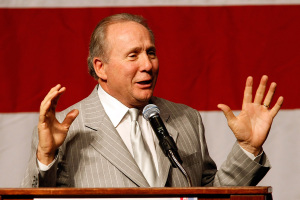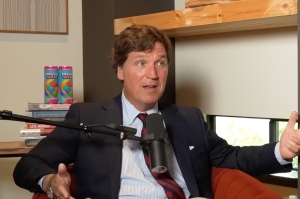The Seven Pillars that Make P.E.A.C.E.
God always blesses us so we can bless others. After The Purpose Driven Life came out and sold more copies than any nonfiction hardback book in history, it became clear that God wanted to use my influence to help others. That's when God laid on my heart the P.E.A.C.E. Plan. If you've been reading the Toolbox for any length of time, you're probably familiar with what it stands for:
Promoting reconciliation
Equipping servant leaders
Assisting the poor
Caring for the sick
Educating the next generation
It's basically what Jesus did when he was here on earth. There's not a lot that's unique about doing these five things. Mission organizations in all corners of the globe are doing them already. Churches have done them for 2,000 years.
It's how these five things are done that makes P.E.A.C.E. different. In fact there are seven ways that the P.E.A.C.E. Plan is unique. These are the P.I.L.L.A.R.S. of the P.E.A.C.E. Plan.
Promotes, plants, and partners with the local church: First and foremost the P.E.A.C.E. Plan is about reclaiming the primacy of the local church in its role in global missions. Why? For the last century, the church has abdicated that role to para-church organizations, mission boards, and mission organizations. Don't get me wrong. These organizations are doing great work, but they were never God's Plan A. God always intended it to be done by the church.
And as we have handed over the reins of global missions, we've excused 99 percent of our members from participating in the five things Jesus did while he was on earth. The idea was this – let the professionals do it. Let the professional doctors care for the sick. Let the professional preachers start churches. But there just aren't enough professionals. We all need to be a part of God's mission in the world if we're going to see his work get done. That's why the P.E.A.C.E. plan is centered around the local church.
Imitates Jesus' model: The P.E.A.C.E. Plan is modeled after the actual instructions Jesus gave when he sent out his disciples in Matthew 10 and Luke 10. You'd think that Jesus' instructions would have long been the cornerstone of missions strategy for the church. Unfortunately, it hasn't.
For example, Jesus says, "Don't take a purse with you." There are two reasons for that. First, he doesn't want us to depend upon our money. He wants us to depend upon him. He is also saying that money can't solve problems of the world. You can't solve poverty by throwing money at it. When you throw money at problems, you create dependency. You create a "what-have-you-done-for-me-lately attitude." Jesus says, you've got to train people to help themselves. That's a core part of the P.E.A.C.E. Plan.
For another example, Jesus said: "Eat whatever they put in front of you." He's telling the disciples to adopt the local customs. You don't ask those you are trying to reach to become like you before they become a Christian. You adapt your situation to them. They don't adapt their situation to yours.
Jesus tells the disciples to go out in pairs. The P.E.A.C.E. Plan is done by small groups. We never send people out alone. You look all the way through Jesus' ministry, he never sends people out by themselves. He always sends them out in groups of at least two. That's why we send out small groups through the P.E.A.C.E. Plan
Jesus also tells the disciples to find a "man of peace" in every village – to start with someone who is open to the message and influential. We teach our teams to spot a person like that on every trip and start with that person.
Just take a look at the other commands Jesus made in those passages. Those words are the cornerstone of how we do P.E.A.C.E.
Lets amateurs lead: When I first started telling people about the P.E.A.C.E. Plan, I got a lot of funny looks when I mentioned my commitment to using amateurs. People thought it was the craziest idea they'd ever heard. How do you solve these five crushing worldwide problems with amateurs?
I love the word amateur. It comes from the Latin word amore, which means love. Amateur literally means "out of love." That's what amateurs are. People who do what they do out of love. There simply aren't enough professional doctors to heal all the diseases. There aren't enough preachers to start all of the churches. Revival has always started with the peasants not the kings.
Links public, private, and church sectors: Over the last few years I've spoken at the Davos Economic Forum. I always hear about the need to link governments and businesses together to help solve some of the world's problems. But if governments and businesses could solve the world's problems on their own, they would have done it by now. We need a three-legged stool. A one-legged stool and a two-legged stool will fall over. But a three-legged stool will stand. The third leg is the church.
There is a role for governments. The Bible tells us that. They bring order and execute justice, along with other responsibilities. There's also a role for business. Businesses bring management skills and capital, for example. But you can't forget the church either. We have a crucial role to play. There are things the church brings to the table that neither business nor government can.
Attacks all five giants: P.E.A.C.E. is a comprehensive strategy. Why? The five global evils we're fighting are intertwined. Poverty is often related to disease. Corruption (bad leadership) is often related to education problems. They are interconnected. Other groups can attack just part of the problem. The church is called to deal with all of the problems. We can't shirk our responsibility.
Re-organizes efforts within a network: We have something we didn't have 15 years ago – the Internet. It allows us to talk to one another even though we are in different parts of the world. Every time God's Word has been put in a new technology, revival has come. When Gutenberg developed the printing press, we had the Reformation. Why? The Word could get around faster. Through the Internet we have a great opportunity to spread the Word even faster.
The Internet has allowed us to network churches all around the world to solve these problems. In the past, if two churches from different parts of the world were working in an area, they couldn't share information. Often, they wouldn't even know the other was working there. Now they can communicate. Over the past four years at Saddleback, we've been working on a P.E.A.C.E. software suite that we plan on giving away to all the churches in the P.E.A.C.E. network. It has six suites all focused on networking churches together.
Shifts to sustainable funding: This means that P.E.A.C.E. doesn't depend on fundraisers, bake sales, or garage sales. It creates self-generating and self-sustaining projects. It fosters sufficiency not subsidy, a hand up not a hand out. We're going to reinvent how missions work is funded.
Did you know that a $50 gift can change a person's life in most places in the world? Buy a chicken and you have an egg factory. Buy a goat and you have a milk factory. It's amazing how a little money will make a big difference in a person's life if it's done in a way that can be sustained.
I believe in the P.E.A.C.E. Plan. Why? It's simply about mobilizing the church to do the five things Jesus did while he was on earth. God will bless that.



























